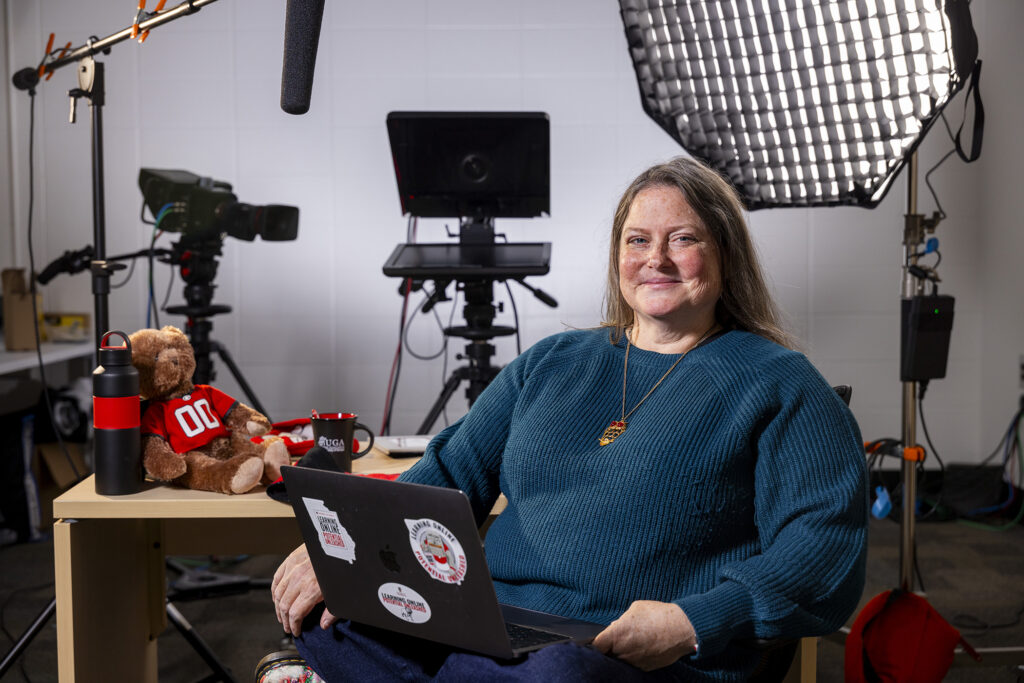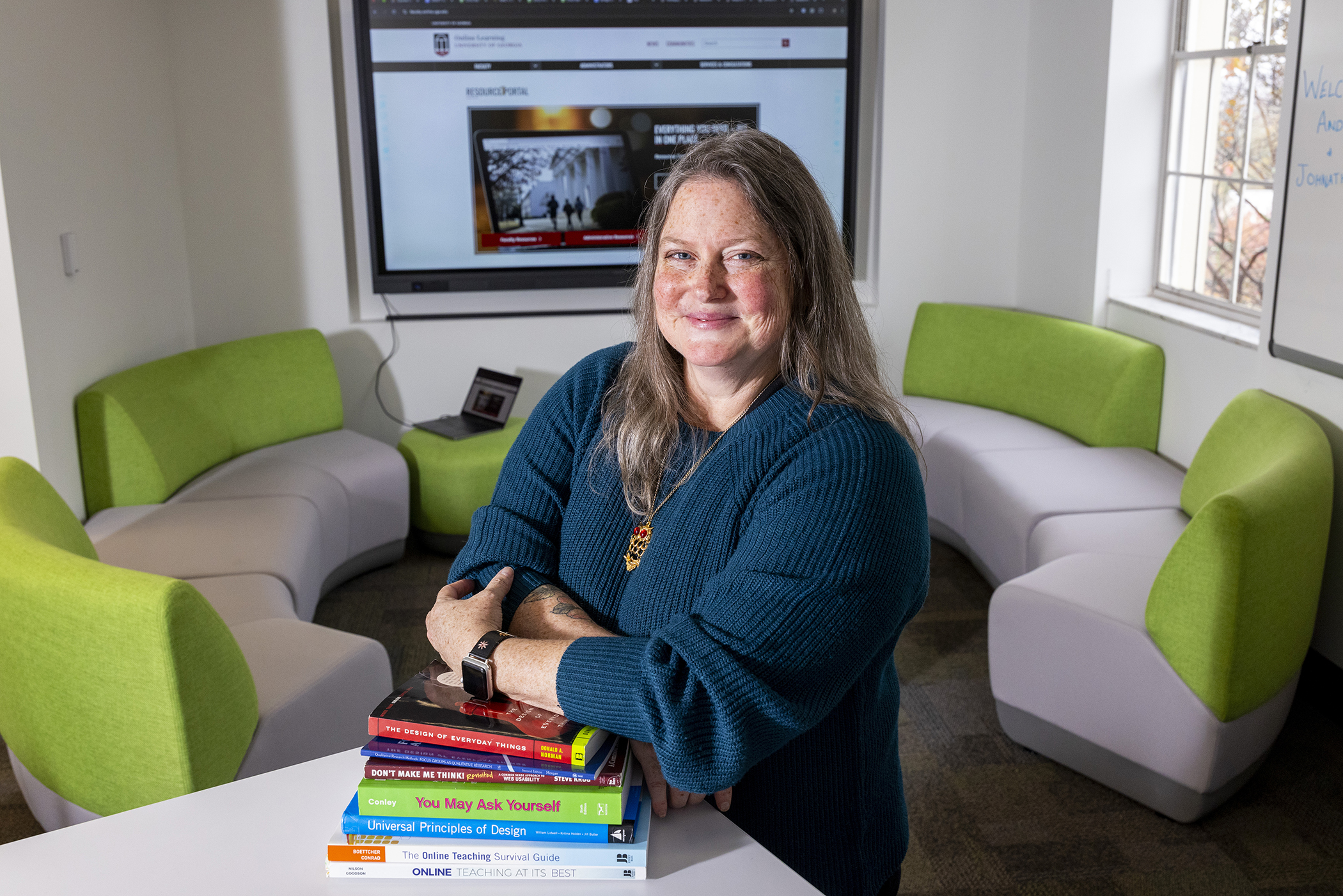Amy Ragland likes to look at education differently.
As an instructional designer for the Office of Online Learning, Ragland helps faculty across the University of Georgia deliver courses to students through digital means.
Education has always been important to Ragland. Her mother was a middle school teacher, and her father was a professor at UGA. They both instilled in her an appreciation for learning and an understanding of the value of accessible education.
“Being a child of public educators, I learned to think about a few things,” Ragland said. “How do we empower and help people through education innovation to make their lives better? How do I make sure students learn what they need to learn to be successful?”
Before becoming an instructional designer at UGA, Ragland worked as a teacher for schools in Athens. At the time, schools were beginning to adopt new technologies to enhance learning, but Ragland soon discovered a problem.
“I was frustrated,” she said. “It felt like technology was designed by the developers and not necessarily by educators.”
The realization led her to pursue a Master of Education in learning, design and technology at UGA. In the program, Ragland worked to find innovative ways to use technology to enrich learning away from the classroom.
After obtaining her degree, Ragland and her family moved to Boston where she continued to work with technology to improve the learning experiences for students struggling with reading. She then returned to Georgia to be closer to her mother and found herself as part of the inaugural team in the Office of Online Learning.
Ragland’s personal experiences with the university and the institution’s purpose strengthened her already held beliefs concerning the power of public education.
“I have a lot of ties to UGA. My dad taught here, and I went to school here,” she said. “But it’s also a public institution, and its mission is to improve the lives of the residents of our state, either through education or through what people are doing with their education here. That’s something I genuinely believe in, so that’s why I’m here.”

Ragland works with professors across the university from the development stages of their courses through the sessions. The process begins with a rigorous week of planning during which she works with the faculty to lay out the coursework, build module roadmaps and design assessments.
“While I may not be an expert on a particular subject, I can help a professor think through what they’d normally do,” Ragland said. “I’ll look at the materials they send me, and then we’ll collaborate to figure out the best way to lay out materials in eLC and be intentional about how we’re presenting the content to the students.”
When the course begins, Ragland spends the semester checking in on live classes with faculty, providing assistance if issues or challenges arise.
In the face of the COVID-19 pandemic, the Office of Online Learning really began to experiment with the wide extent to which technology could be used for learning.
“I helped with some art history and had to think about ways to translate something that is usually taught face to face. If you think about seeing the statue of David in person versus seeing it online, it’s a very different experience,” Ragland said. “We had to help professors think of new ways to teach and assess students. Things like online museum archives became really useful.”
The experience changed the way members of the university thought about online learning.
“When COVID protocols were lifted and people were going back, a lot of our faculty really realized how useful technology can be,” she said. “Online tools like eLC or text channels for discussions can be helpful for students in getting the support that they need.”
When Ragland is away from the computer, she enjoys connecting with nature. Every summer, she and her son take a hiking and camping trip in Maine.
No matter how far Ragland is from technology, she continues to appreciate the importance of accessible education for all students.
“When you consider and design courses for the people in the margins, no matter how they learn, you improve the experience for everyone,” she said.


